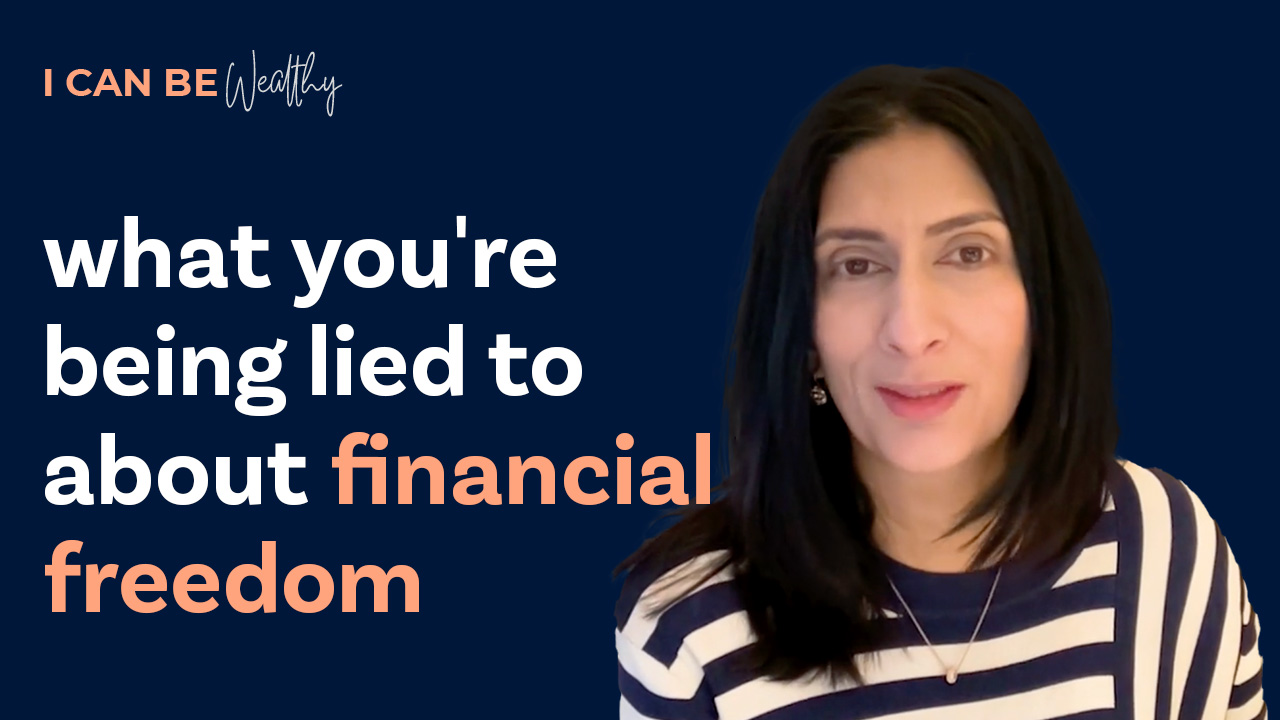The Two Common Issues Investors Experience
I’ve witnessed a couple of big problems in the years that I’ve been working with a lot of successful people, particularly in the realm of property and investing around property.
The challenge is, we pull a few good moves and then we think we’re infallible. We make a few good decisions, maybe we’re pretty good at our business or our career, and we think we’ve got the Midas touch. We get on a bit of a roll with our investing and then we fool ourselves into believing that we are super skillful – and then we get really really confused if things go wrong and we blame external factors.
The other issue that I witness is, if you have a 7 or 8 figure net worth, you believe it gives you full immunity. So we think, “Hey, if we were 3 mil, 5 mil, 10 mil, 15 mil – cool, we’re safe” and so we get lazy and complacent.
We also think that as our net worth starts to ratchet up, we’re improving our immunity to financial pain. And then when we see people around us who maybe trip and fall, or who make one wrong move that cripples them, we think “Oh, that will never happen to us.” Whether it’s happened to you or happened to someone you know, those are real problems.
Try and stop yourself from getting a big head, or an inflated opinion about your wealth building abilities. Just because you have a big balance sheet, don’t fool yourself into thinking that things can never go wrong.
Try to acknowledge a little bit of the role of luck and timing, which may come in the form of preparation meeting opportunity. Try to acknowledge that and, ultimately, remain very vigilant. What I mean by vigilant is thinking of your investing like a game of chess: you want to be protecting your capital regardless of the level that you’re at and have this attitude that every piece on the board counts. Then you can start to really elevate yourself and start behaving and thinking like professional investors.
I’ve had the great fortune of being surrounded by people who are really top of their game when it comes to investing. I want to share with you some of the lessons and insights that they’ve shared with me over the recent years, which I’ve not only seen to be true in my own wealth building journey, but I witness it in the journey of investors that I work with as well.
Failure is a Lousy Teacher
The quote that I started with, which was saying that success is a lousy teacher – the flip side of that is also true. Failure is a lousy teacher.
Sometimes when people make great decisions, they think it’s completely attributable to their skill. And as I said before, sometimes people can fool themselves into thinking that they’ve got the Midas touch.
The flip side, which is failure is also a lousy teacher, is heartbreaking in a way. Sometimes people can put one foot wrong or make a silly mistake that results in some kind of loss and they make it mean so much more. They make it mean that they’re not a good investor, or they’re no good at business, or there’s a weakness somewhere.
We’ve got to learn to look for the lessons both in success and in failure – but not so heavily load our worldview that it completely shapes our future decision making.
I’m definitely a believer that success is a function of preparation meeting opportunity. And I also know that your frame of reference in life is what gives you your experience. I personally feel really lucky on many levels. I often say to people, I’ve had a life of great fortune.
But there’s no question in my mind that there’s truth to the statement that luck and risk are dopplegangers. What this means is that your outcomes in life are divided by many forces, and you can’t just attribute where you are today to just your skill and individual effort.
If you are someone who cares about preservation and growth of your wealth, when you’re judging your own success and you’re judging the success of others you just never really know how good or bad it seems. I’d like to put that as the starting point.
Acknowledging Luck in Your Successes
So if I go back to our mate Bill Gates, there’s no question that he’s one of the most successful entrepreneurs of all time. But what a lot of people don’t know is that he attended a high school that in 1968 had one of the only computers in the whole world.
Were it not for the efforts of that high school, it’s unlikely that Bill Gates would have enjoyed the same career success. He himself admits that had there been no Lakeside High School, there would have been no Microsoft, and so on.
On the flip side of that, he was one of a group of three friends who were very tight and all equally talented and interested in computers. One of those friends ended up dying in a mountaineering accident just before graduation. So again, a horrific stroke of bad luck.
But really, when you think about good and bad luck, definitely those have had an impact on Bill Gates. We are often reluctant to acknowledge the role of luck when we’re talking about our own success, or even when we’re judging other people’s success, because we think it’s rude.
There are people out there, world famous economists, who acknowledge that you can’t measure luck – but that doesn’t mean it doesn’t exist. Most people understand and believe in luck, but because it’s really hard to quantify, we tend to downplay it.
Quite frankly, if you said to someone who’s sharing a win with you that maybe there was an element of luck involved there, they’re going to think you’re really rude. So we’re mindful that we don’t want to be seen as looking mean or jealous when it comes to judging success.
So, try to abstain from judging others. But when you’re judging yourself, just be mindful that it’s not always as clear as it seems, and sometimes it’s too demoralising to accept that fate or luck may have played a role in your outcomes.
Did you Make a Mistake or Experience the Reality of Risk?
Everyone is a guru with the benefit of hindsight.
Let’s say you buy a property and it goes nowhere, but you had 90% chance that it was going to work out for you. I knew a bunch of people who bought a series of properties in Melbourne and Sydney just prior to the boom in the last decade. Those properties went a little backwards: cash flow was terrible and they were told, “hang in there, it’ll come good” but they just couldn’t afford to.
So the question is, do you assume you made a bad decision? Or is it possible that you made a good decision but you just got unlucky? Those are the things that are easy to judge with hindsight.
But, unfortunately, there are a lot of people, particularly self claimed wealth experts, that will argue till they’re blue in the face that they got it right, or that they get it right 100% of the time.
The question that you want to be asking yourself when you make a mistake is, did you make a mistake or did you experience the reality of risk? And these are two different things.
Leverage is a really great example. Leverage can make or break fortunes, and being bold and foolish on very similar decisions can seem visible with hindsight, but at the time can sort of be easy to judge.
One of the best examples of this, of whether you’re a genius or an idiot, is when you look at some of the big decisions that some of our more famous entrepreneurs have made. Mark Zuckerberg turned down an offer from Yahoo for a billion dollars to buy Facebook out. And everyone said “oh thank god he did, ’cause look where he is now.”
But the truth of the matter is, if I put that in real terms, we’re all still trying to figure out what strategies work and what don’t. How do you get rich and avoid being poor? We’re seeking out these lessons from people who are in the media or people who are high profile, and we think that they did that, so I should do that.
So if we think about the Mark Zuckerberg example, a lot of people looked at that and thought it was a really smart decision. And then on the flip side, we call the guys from Yahoo idiots because they turned down a fairly significant buyout offer from Microsoft.
So I guess the point that I’m making is, the idea of judging someone as having made great decisions or bad decisions is not as black and white as it may appear on the surface.
Salena’s Final Warnings on Risk, Luck & Hindsight
Be careful who you admire.
Be careful who you judge as right and wrong.
Be careful that you don’t assume that 100% of outcomes can be attributed to effort, decision and skill.
Rather than focus on individuals (because often individuals exhibit and represent the extreme, the one or two percenters that kind of get that epic result) focus more on patterns and habits.
Structure your investments in a way so that one bad investment can’t wipe you out.
Unfortunately, I’m seeing more and more people put it all on red. Or, they take a large percentage of their portfolio and they take on investments which they don’t need to take on, but which ultimately give them exposure to a risk that is potentially going to wipe them out.
Final Thoughts
I hope you found that really useful.
I would love to hear any stories that you might have about experiences, past and present, where you’ve recognised that the element of Lady Luck played a role.
One of the things that I would encourage everyone to do, including myself because I’m the first person to school myself in this idea, is to admit that you’ve been super lucky in life.
If you’ve got stories to share, please reach out to me. Send me an email at salena@www.www.inkosiwealth.com – I’d love to hear about them.
If you’re a business owner feeling frustrated that despite doing everything right in the property investing playbook and you’re no closer to financial freedom, then head over to www.inkosiwealth.com to learn more about how you can use alternative investments to catapult your investing income and blend strategies to shave decades off your timeline to financial freedom.
If you’re interested in understanding how to create wealth through alternative strategies, please check out my programs, where I help you catapult your investment income and blend strategies to shave decades off your timeline to financial freedom.
Or, you’re welcome to get in touch today, book a call with me, and I would be happy to talk you through it – no obligation!









